Her Story: Dr Olivia Chapple, on losing a son, and planting his legacy.
- Stephanie Drax
- Jan 7, 2019
- 6 min read
When Horatio Chapple lost his life in a tragic encounter with a polar bear, his family were in pieces. But quickly they realised their son had left them a precious gift that would benefit many others, and Dr Olivia Chapple has dedicated her life to implementing it.

Horatio was my eldest son – one of three wonderful boys. He was always true to himself, wise, considerate and wouldn’t let things go if there was an injustice. He wanted to make things better for people and he was problem solver.
In the summer of 2011, when Horatio was 16, he volunteered for the NHS. It is the youngest age that the NHS will allow, and he put himself forward to volunteer in a spinal centre in Salisbury (near where we live). He had awareness of spinal injuries from when he was young. My husband is a well-respected spinal surgeon and I’ve had two close friends that have suffered spinal injuries. Until I lost Horatio, I was a GP. Horatio intended to be a doctor - he had deep empathy and kindness and was very inquisitive - he would have been a great medic.
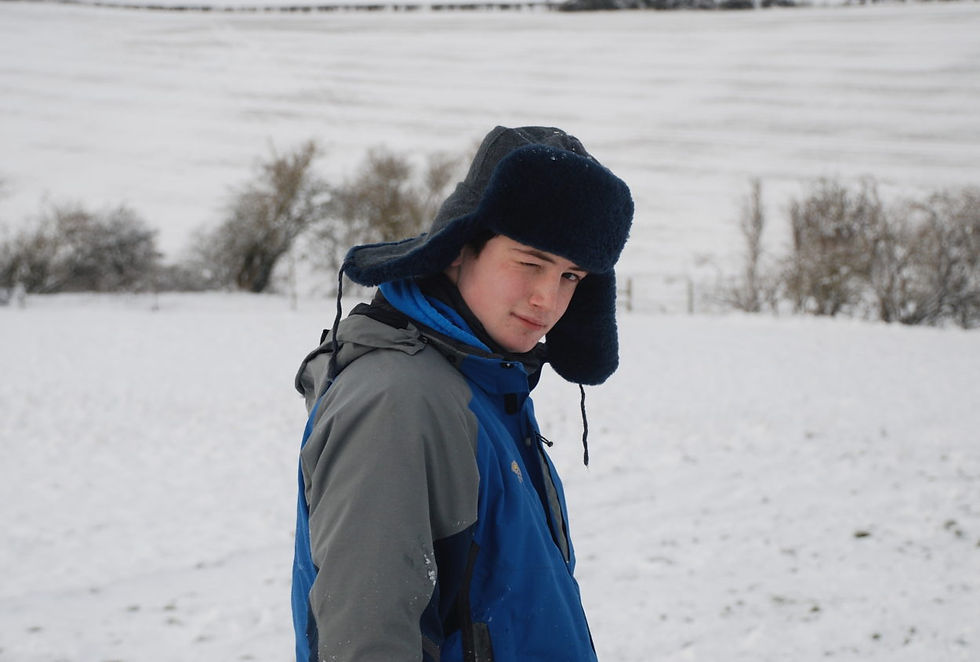
He immediately made an impression in the spinal centre. Horatio helped out on the ward chatting to patients, feeding those whose hands weren’t working and generally he made himself very useful.
The charity I now volunteer for full time was all Horatio’s idea. A patient asked him to take them outside, but there was nothing but a car park and a bin area. No beauty. This seemed to strike a chord with him. It bothered him that there wasn’t a garden where people can spend time with their families off the ward. He was like a dog with a bone and wanted to find out the reasons why.
Horatio identified that there was some land beside the unit that could be used for a garden. We advised him to do some research to test his idea and encouraged him to find out what the needs of the spinal centre were. He produced a questionnaire and asked all patients what features of a garden would be important to them. His findings are the essence of what we now do with the charity: the patients were craving a beautiful escape, cleverly designed to be subtly accessible for wheelchairs and hospital beds and a place that was the antithesis of the hospital.
Horatio even met with the hospital’s chairman who agreed to the idea and we started back of the envelope designs. It was at the forefront of everything we talked about that summer and Horatio was going to do a cycle ride to raise money.
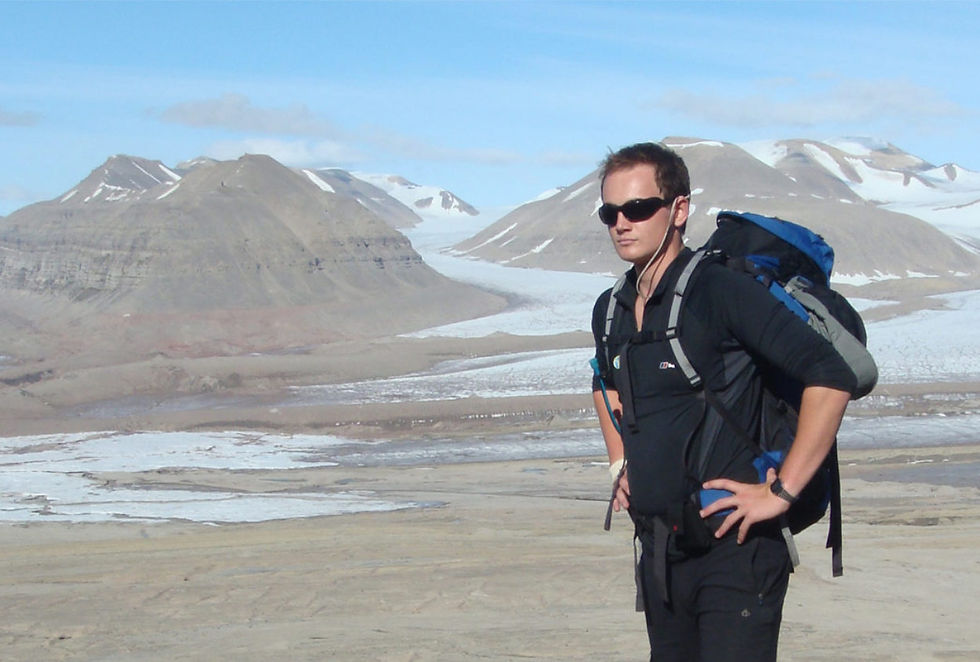
Then Horatio went on an ill-fated trip. It was with an organisation that takes groups of young people wanting to challenge themselves on expeditions. Horatio’s was a science trip to Svalbard in Norway and he took it very seriously and had trained hard for it.
Ten days into the trip, disaster struck. The group was sleeping in their tents and their camp was approached by a polar bear. The first tent the bear attacked was Horatio’s. He got out and tried to defend himself and his friends, his enormous courage bided enough time for the others to escape, but he lost his life.
Our family was in pieces. But in the awfulness of that aftermath of total shock and disbelief, there was a thread that came out from the day Horatio died. People knew about his passion for the garden and they wanted to help in some way. They got together and donated money – first friends and family, then the wider community of Salisbury, and then people we didn’t know but who were touched by the event. Horatio had left us with a gift.
We found ourselves with a fund that was sufficient enough to do something amazing. We gathered ourselves to think clearly about how to create a legacy to honour what Horatio had done and his hopes for the future. I called Cleve West, a garden designer who has won endless gold medals at the Chelsea Flower Show, and he didn’t hesitate to say yes to design Horatio’s Garden at Salisbury spinal centre. Cleve understood as he had spent a night on a camp bed there when a close friend was a patient. It was going to be a huge challenge to design a garden surrounded by NHS buildings and a car park - with all the compliance and safety issues involved - but he was willing to take it on.
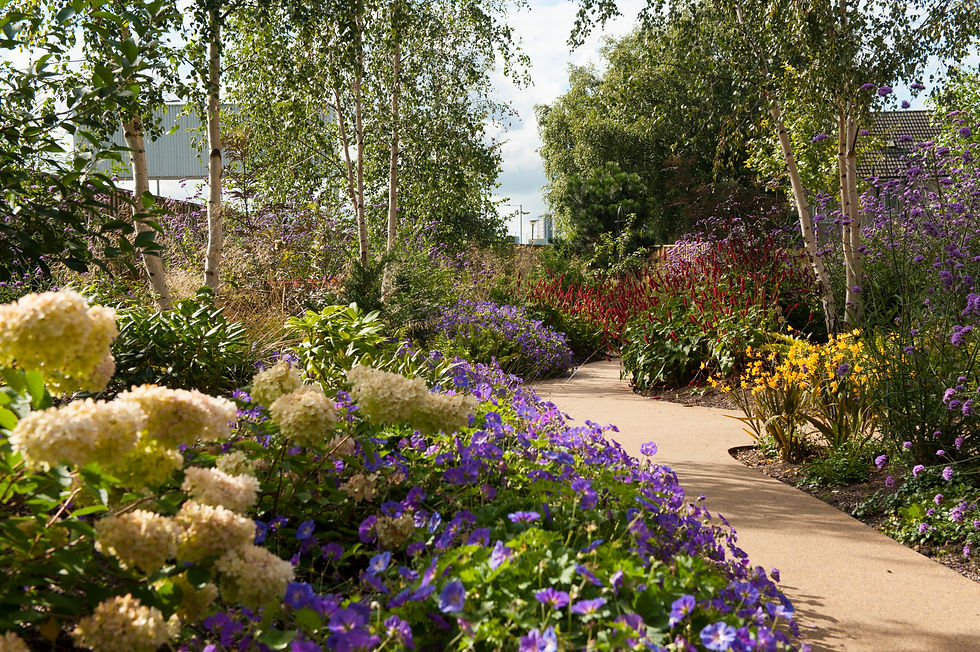
In September 2012, just over a year after Horatio had been killed, we opened the first garden. Out of a huge tragedy, something positive was created; it was a wonderful sense of achievement and a feeling of something new starting. Though as parents we are so pleased to be creating a legacy, the grief is always there as well and we wish Horatio was with us to share in the success. It’s still very emotional, and that’s also because the gardens themselves are infused with emotion. Many of the patients and their families are in shock, having experienced the physical and psychological impact of life changing injuries, and many are going through a form of grief. It’s a beautifully designed garden but it’s even more than that – the collective energy of kindness and gentleness of the volunteers creates a hugely supportive and nurturing environment.
When you lose someone so close, colleagues and friends can find it difficult to know how to support you. My husband David says that the gardens have given him a way to talk about Horatio in a positive way at work with colleagues. If you have something to talk about that’s positive and brings the one that is lost into the conversation – it’s much more comfortable for others.
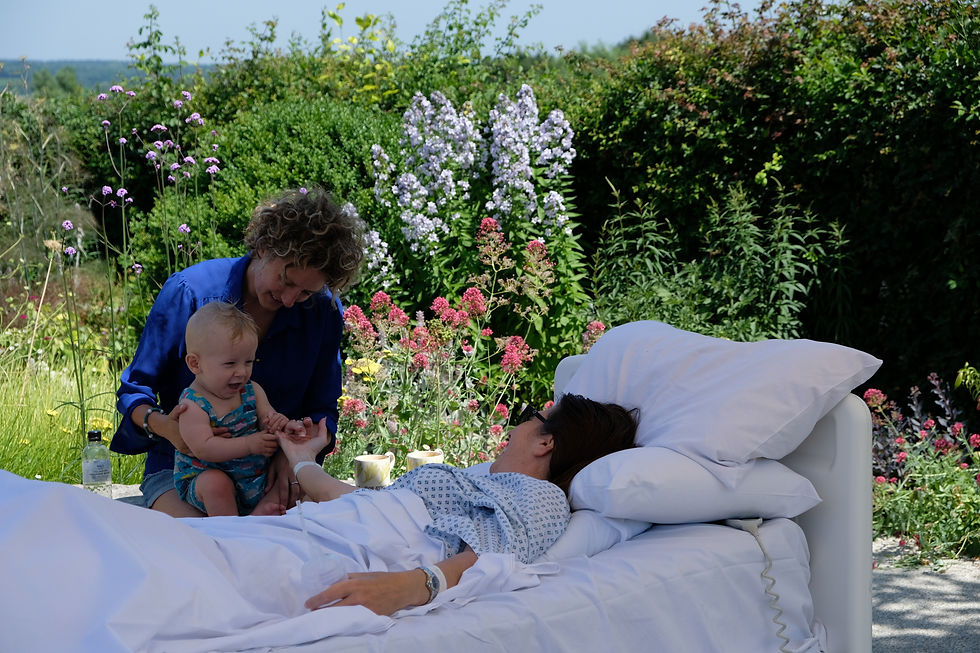
The process of having lost a child is of trying to come to terms with that loss and live in a different way. I didn’t intend to give up my career, but when Horatio was killed I was traumatised and wouldn’t have been useful as a GP. Other spinal units that had seen the success of Salisbury started to approach us, and we decided to set up Horatio’s Garden as a national charity to help families all over the country who are affected by spinal cord injury. Now volunteering for the charity has taken over my every waking minute.
There are eleven spinal centres in the country and we want to bring garden projects to every one of them. It’s quite a defined objective. Our hope to have the extraordinary havens in Horatio’s name in all the spinal units is because we know the impact for the patients it so significant. We’ve got three Horatio’s Gardens open now and are working on the next three, one of which is in London and will be designed by Tom Stuart-Smith. Every garden has a large garden room so that it can be used all year round and once we open them, we maintain each project and host events, including live music, art groups and sculpture exhibitions. It brings normality and gentle rehabilitation into these regional centres where people are often a long way from friends and family.
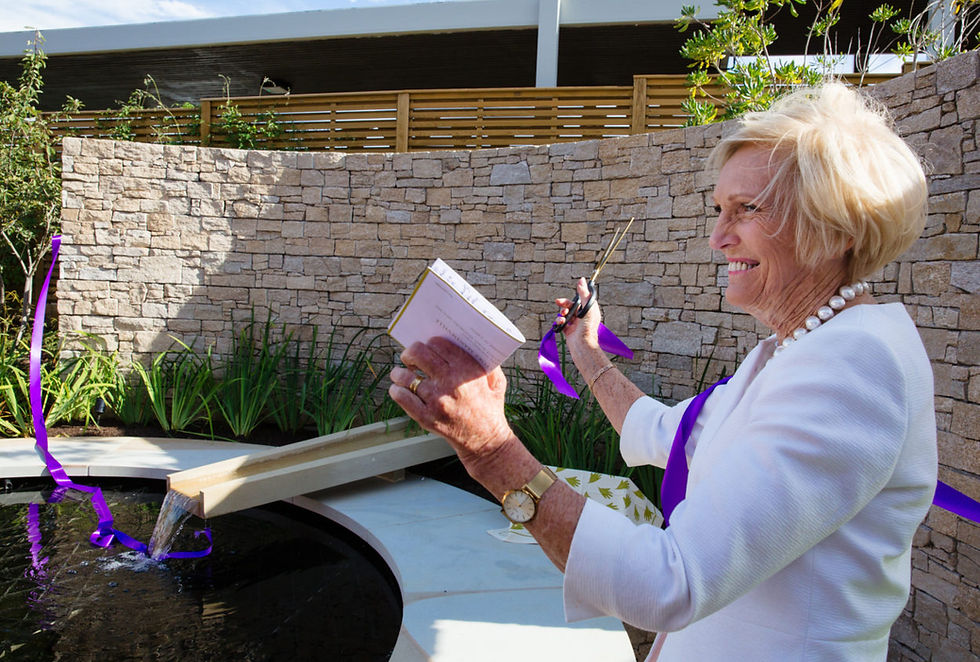
We’re constantly raising awareness to try to build a growing charity. We’ve had support from Mary Berry (who opened our garden in Stoke Mandeville), Prince Harry, Princess Eugenie (who had surgery for scoliosis), Mel Giedroyc, Anneka Rice and Joanna Lumley, who have come on board in an official capacity. Our challenge is to raise the funds to achieve our goals and I am focused on that – encouraging people to come to our events, holding their own events or even running a marathon. This year we are launching a national garden tea party week at the beginning of June. Different companies support us, and we’ve been sponsored to have a presence at the Chelsea Flower Show to talk to visitors. We’re volunteer-led to keep our costs down and we want to encourage people to get involved in any way they can. All donations go directly to building the gardens and maintaining them.
My other two sons are now 22 and 20. They have gone off exploring as well, but when you’ve had a tragedy, of course you’re always going to be incredibly wary as a parent and saying goodbye to them is very hard. There’s no pressure on them to be involved in the charity, but they feel proud of it. They are both registered volunteers and they helped plant the first garden and are often involved with fundraising. My elder son has started coming to project planning meetings and the younger one is a musician, often performing his own songs at Horatio’s Garden events. They know he would have been pleased that we’d made this happen. It doesn’t change the missing of their brother, but it’s given them somewhere to channel their feelings.
The charity gives us the opportunity to talk about Horatio and his life still has relevance and meaning. Horatio gave us a great idea and it is a privilege to be able to implement his thoughts. A huge positive impact has come about from Horatio’s life. The charity is young, dynamic and has real energy of its own. It’s not a static memorial, but a legacy with great momentum bringing calm and hope to so many people in NHS spinal injury centres.






Comments